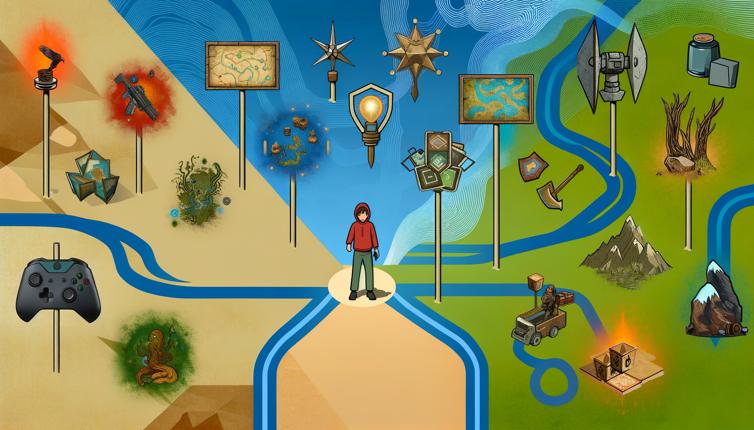Understanding Dialogue Systems
Before diving into selecting dialogue options, it's important to understand how dialogue systems work in video games. Dialogue systems are designed to simulate conversations between the player's character and non-playable characters (NPCs). These conversations usually involve multiple dialogue options that the player can choose from, each leading to different consequences.,Dialogue options are typically presented in a menu format, allowing players to read through and select the most suitable response. These options can range from friendly, aggressive, persuasive, or neutral, and can have different effects on the game's story and relationships.,Additionally, some dialogue options may be locked or unavailable until certain conditions are met, such as completing specific quests, reaching a certain level of trust with an NPC, or uncovering certain clues. These locked options often provide unique opportunities and outcomes that can significantly impact the game's narrative.,Understanding the mechanics behind dialogue systems will help players make informed decisions and navigate through the game's branching paths.
Building Relationships Through Dialogue
One of the main benefits of selecting the best dialogue options is the ability to build strong relationships with NPCs. Dialogue choices that align with an NPC's values, beliefs, or interests can increase their trust, liking, or respect towards the player's character.,To build relationships effectively, pay attention to the personality traits, backstory, and preferences of the NPCs. This information can be obtained through conversations, exploration, or by completing quests related to the NPCs. By understanding the NPCs' motivations and goals, players can tailor their dialogue options to foster positive relationships.,Furthermore, actively listening to NPCs during conversations can provide valuable insights and cues on the appropriate dialogue choices. NPCs may drop hints, reveal vulnerabilities, or express their desires, which can be used strategically to strengthen the relationship.,Remember, building relationships takes time and consistent interaction. Continuously selecting dialogue options that align with an NPC's values and showing genuine empathy can lead to stronger bonds and unlock additional storylines.
Unlocking Paths and Outcomes
Selecting the best dialogue options can also unlock different paths and outcomes in the game's narrative. Some choices may lead to specific quests, character alliances, or even alternate storylines. These branching paths provide replayability and allow players to experience different facets of the game's world.,Exploration and experimentation are key to unlocking hidden paths. Take the time to exhaust dialogue options with NPCs, as they may provide crucial information or trigger events that lead to new opportunities. Additionally, consider revisiting NPCs after completing major quests or character arcs, as their dialogue options may change.,Be aware that some dialogue options may have unforeseen consequences or impact other characters and factions in the game. It's essential to weigh the potential risks and rewards before making critical decisions. Frequent saving or creating multiple save files can help mitigate the impact of irreversible choices.,Keep in mind that not all outcomes are positive or beneficial. Some choices may lead to conflicts, betrayals, or undesirable consequences. Embrace the unpredictability, as it adds depth and realism to the game's world.
Conclusion
In video games, selecting the best dialogue options can significantly impact the player's experience and shape the game's narrative. By understanding dialogue systems, building relationships with NPCs, and unlocking different paths and outcomes, players can fully immerse themselves in the game's world and enjoy a personalized gaming journey. Remember, every choice matters, so choose wisely!









